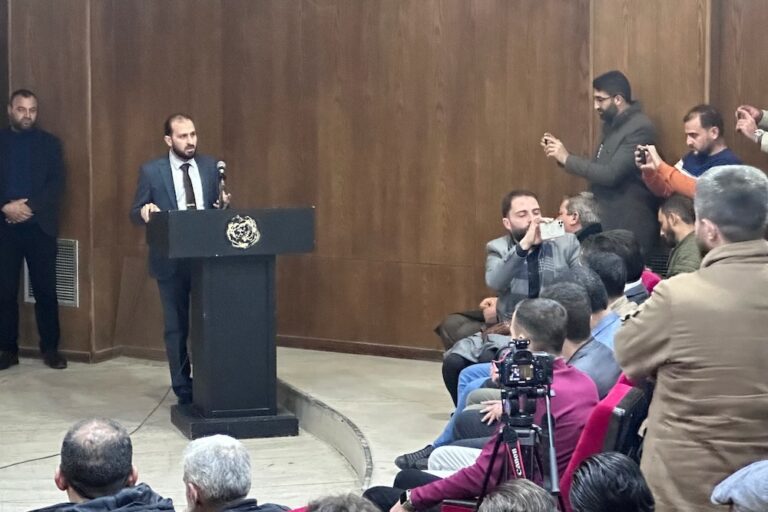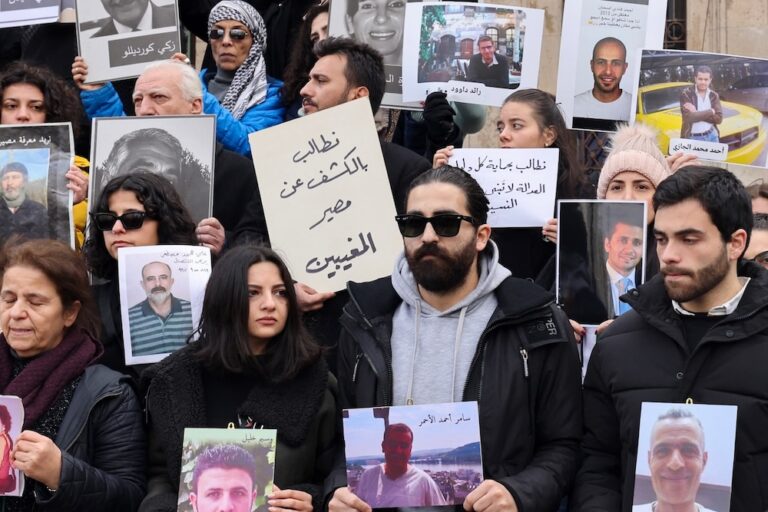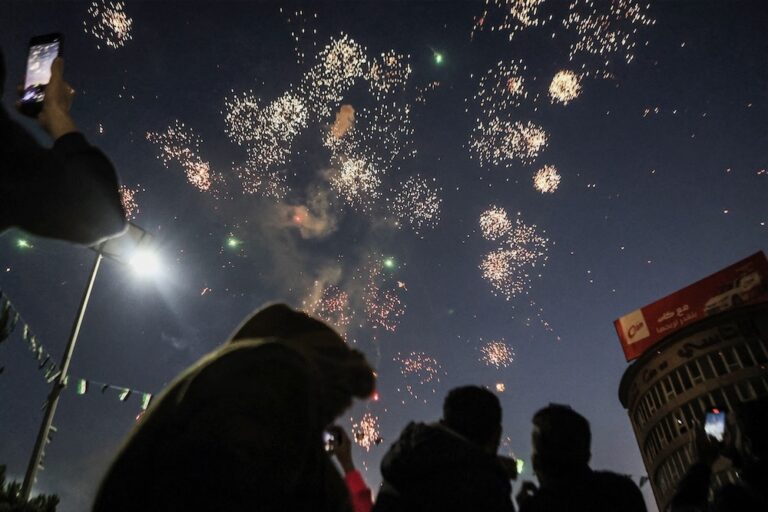Eight people arrested during the raid on the Syrian Center for Media and Freedom of Expression were released, pending trial, while three others, including the centre's president Mazen Darwish remain in detention.
UPDATE: Writer released and deported (WiPC, 16 May 2012)
(CPJ/IFEX) – New York, May 14, 2012 – The Committee to Protect Journalists welcomes Syria’s release of several journalists and press freedom activists over the weekend, but condemns the continued detention of at least nine journalists – and likely several more – including two journalists arrested without charge in the past month.
“We call on authorities to disclose the whereabouts, health, and charges filed against all journalist detainees,” said CPJ Executive Director Joel Simon. “Syria must respect the right of journalists guaranteed under international law to report the news and release all imprisoned journalists immediately.”
(. . .)
Of the 13 journalists and press freedom activists who were arrested when authorities raided the offices of the Syrian Center for Media and Freedom of Expression in Damascus on February 16, eight were released Saturday, according to news reports. Three of them are journalists: Yara Badr, the wife of center President Mazen Darwish; the U.S.-born blogger Razan Ghazzawi; and freelance journalist Hanadi Zahlout. The five other individuals affiliated with the center who were released are: Sanaa Zitani, Mayadah al-Khalil, Joan Farso, Ayham Ghazzoul, and Bassam al-Ahmad. On May 29, the group is due to appear before a judge for the “possession of banned publications,” Anwar al-Bunni, a prominent Syrian human rights lawyer, told Agence-France Presse.
Mazen Darwish, prominent blogger Hussein Ghrer, and three other individuals affiliated with the center remain in detention, the reports said. Darwish and Ghrer are being held by Air Force Intelligence in solitary confinement despite their deteriorating health, according to news reports, Human rights groups say they have been tortured and denied basic legal rights.
The Syrian Center for Media and Freedom of Expression was instrumental in reporting the killing and detaining of journalists since Syria’s uprising began last year. The organization’s website has been disabled since at least April 27.
The Syrian government has detained at least two more journalists in the past month.
Salameh Kaileh, a prominent writer for several Arabic newspapers and magazines, was arrested on April 24 when security forces raided his Damascus home and confiscated his computer and other personal items, according to news reports. Kaileh, who is of Palestinian origin, was transferred to the Department of Immigration on May 10 with the possibility of deportation to Jordan, news reports said.
The journalist, who was previously detained for eight years in the 1990s for his membership in the Communist Labor Party, has written critically of the regime, including its role in suppressing the media, and is also critical of the opposition, news reports said. Kaileh suffers from leukemia and requires special medical attention, news reports said. No charges have been brought against him and his family has been denied access to him.
Mary Iskander Issa, a freelance journalist who has published articles in several Arabic-language publications, was arrested at her Damascus home on April 14, along with her husband, who is a doctor, according to news reports. Issa, who has written critically of the regime’s repression during the uprising and called for a democratic state, has not been charged. Her whereabouts and condition are unknown.
Citizen journalists are also being targeted by the Syrian government. Ali Mahmoud Othman, who ran the makeshift media center in the Baba Amr neighborhood of Homs where two international journalists were killed in February, has been in detention without charge in Damascus since his arrest in early April. International reporters and leaders including U.K. Foreign Secretary William Hague have expressed concern that he has been tortured. On May 5, Othman appeared on Syrian state television in what was described as a routine interview; his comments were used to buttress a theory of an international media conspiracy against the regime.
At least five other journalists remain in prison after being arrested in 2011, according to CPJ research.
Nine journalists have been killed while covering Syria since November, making it the most dangerous place for journalists in the world right now, CPJ research shows. CPJ is investigating the cases of several additional citizen journalists killed in the past few months.


